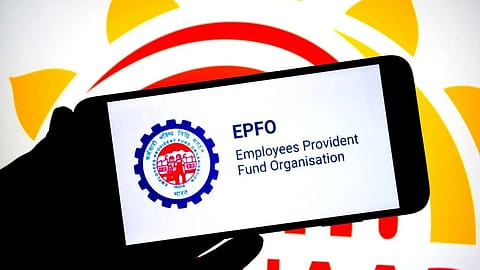Inside EPFO death claim process: Why families still struggle to access their dues
Despite the EPFO's efforts to modernise, the death claim process remains cumbersome, with families facing lengthy delays due to verification bottlenecks and outdated systems. The need for reform is urgent, as timely payouts are crucial for families relying on these funds to navigate financial crises after a loss.

When a salaried worker dies, the Employees’ Provident Fund (EPF) is meant to act as an immediate lifeline—delivering a lump sum, a monthly pension, and up to ₹7 lakh in life insurance under the Employees’ Deposit Linked Insurance (EDLI) scheme. For many families, these are the only funds that can keep them afloat in the months after tragedy. Yet for too many, accessing these benefits is a slow, complex, and emotionally exhausting ordeal.
The EPFO, which manages over ₹20 lakh crore for more than 30 crore members, operates one of the largest social security systems in the world. Its mandate is clear. But when it comes to death claims—the most urgent category—its systems remain riddled with procedural roadblocks that can stretch payouts from weeks to years.
A Case That Speaks for Many
In Pune, a young widow’s experience shows how these delays unfold. After her husband’s sudden death, she expected the EPF and EDLI payouts to arrive quickly. Instead, she spent almost two years entangled in administrative knots. Employment records showed overlapping job dates, one employer was never linked to the Universal Account Number (UAN), and none of the service periods were merged.
The complications didn’t end there. Her PF accounts were split across offices in Delhi, Mumbai, Pune, and Bangalore. Each mismatch meant new forms, repeated in-person visits, and multiple employer verifications—some from companies that had since shut down or changed ownership. By the time the funds finally arrived, the family had already sold gold, borrowed at high interest, and fallen into debt. The financial blow was devastating, but the prolonged uncertainty made the loss even harder to bear.
Why Delays Happen
According to EPFO’s FY2023–24 annual report, the organisation processed over six crore claims worth ₹2.05 lakh crore in a single year. Yet 30% of settlement claims were rejected. For pension claims, the rejection rate climbed to around 40%. Death claims take the longest to process because they require extensive verification and coordination between multiple parties.
Recommended Stories
A closer look reveals the most common bottlenecks. One is incomplete or outdated nominations. Without a verified nominee on record, the claim is forced into lengthy legal procedures to establish rightful ownership. Another is KYC mismatches—minor inconsistencies between Aadhaar, PAN, and bank account details can halt verification entirely.
Multiple PF accounts also create complexity. Job changes often leave accounts unlinked, requiring time-consuming consolidation before any payout. Employer dependency is another challenge—when a company has closed, merged, or undergone leadership changes, verification can take months. And finally, while EPFO has digitised simpler claim types, death claims still require manual, physical verification—slowing the process considerably despite broader digital reforms.
In a high-volume system, these inefficiencies multiply. Even small delays become systemic, affecting lakhs of grieving families every year.
The Real Cost of Delay
(INR CR)
The consequences of these bottlenecks extend far beyond inconvenience. For the Pune widow, timely disbursal could have covered years of household expenses. Instead, she was forced into high-interest loans and asset sales, deepening the financial crisis at the worst possible moment. Many families describe the process as “reliving the loss” each time they visit an office or resubmit a document.
Fixing the System
To its credit, EPFO has modernised many processes and made significant strides in digitisation. But death claims, given their urgency, need deeper reform. Regular validation of nominee details during a member’s lifetime could prevent legal disputes later. Proactive KYC audits—updating and cross-verifying Aadhaar, PAN, and bank information periodically—would reduce verification failures at claim time.
A centralised employer verification system could remove the dependency on individual companies, especially those that have shut down or changed ownership. And perhaps most critically, EPFO should classify death claims as time-sensitive emergencies rather than routine files—ensuring they are prioritised for processing and resolution.
The Promise at Stake
The EPF is one of India’s most important social safety nets. Its true value lies not just in the corpus it holds, but in the speed and dignity with which it delivers help when families need it most. Streamlining death claims is not just an operational improvement—it is an act of institutional compassion. For grieving families, this isn’t a policy matter. It’s survival.
(Harsh Jain is the Founder of Kustodian.life)